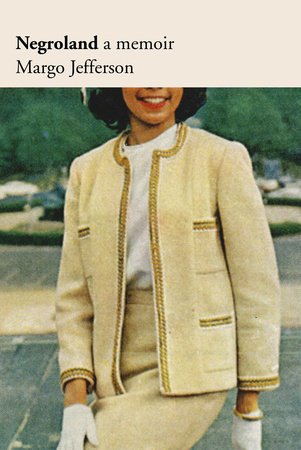Two Thursdays ago, the Seminary Co-op was filled to almost standing capacity as a large, enthusiastic crowd waited for Margo Jefferson, and Jamie Kalven to begin discussing Jefferson’s latest book, Negroland: A Memoir, which explores the history of Chicago’s black elite and the way her life has been informed by her upbringing within it. Kalven, a human-rights activist and journalist known for his work with the Invisible Institute, joked that he was witnessing for the first time an event with its own “underground economy of chairs.” People were milling about to trade places, moving distractedly, unable to take their eyes from their copies of Jefferson’s book, which were often opened to the book’s final chapters and full of penciled annotations and underlined passages.
Though the packed house created a sizable logistical mess, Jefferson kept cool. She is renowned for her theater criticism, so the stage-like scene was likely quite familiar to her; Kalven and Jefferson stood with their bodies angled out toward the audience, projecting their resonant voices. When Kalven began by asking about the “path” to the writing of Negroland, Jefferson’s tumbling hand gestures, overdone to comic effect, could be read all the way in the back row.
Public appearances are performances by default, and Negroland is largely about performance: Jefferson has been performing her whole life, both professionally and personally, whether by her own will or by societal necessity. As a Pulitzer Prize-winning critic, she has studied performance from all possible angles; as a professor, she has been onstage before audiences of students. Her most prolonged and arduous performance, however, has been that demanded of her by Negroland itself, simply by virtue of her residence there.
Growing up in Negroland, which Jefferson defines on the first page of the book as “a small region of Negro America where residents were sheltered by a certain amount of privilege and plenty,” Jefferson was expected to perform within the bounds of taste instilled in her; these bounds were often contradictory and confusing. She was taught “not to show off” but was also told to “excel,” to somehow aspire to both distinction and normality. An audience member shared her experience of being pressured by her Negroland residency to switch neighborhoods and attend a specific kind of private school. Jefferson shook her head and nodded it at the same time, in a gesture of solidarity (she graduated from the UofC Lab School, one year before Kalven did). “The question then is,” she said, “‘How do you improvise within that?’”
How, for instance, do you improvise when you become depressed despite having been coached for years never to show emotional excess? “In the late 1970s,” Jefferson writes, “I began to actively cultivate a desire to kill myself.” At the same time, deeply embedded admonishments repeated in her head, telling her: “Your despair is self-indulgent.” How can these thoughts possibly be reconciled, so that the show may go on?
Despite its title, Negroland is a lot more than just A Memoir. The construction, loosely, consists of case studies culled from American history from the 1700s to the present day, followed by memoir which emphasizes her childhood education and ends with tales of Jefferson’s more recent professional life, finished with more family history. Historiographical qualms bracket the book, and period-appropriate media studies of magazine trends and African American poetry are sprinkled throughout.
Negroland is full of historical and autobiographical anecdotes, giving its reader many examples of how residents of Negroland had to improvise in a world of contradictory expectations. The tone of the writing varies between examples because Jefferson is so completely a master at modulation. Family history is told intimately and concisely; one example is the life of Lily McLendon Armstrong, Jefferson’s maternal grandmother. Her story is drawn in scrupulously fine detail (her name; her third husband; her insistence that “it’s never too hot for fur”) over the course of only two pages. The 41 words dedicated to one of Armstrong’s arrests (she was one of Chicago’s first African-American policewomen) are poetic and powerfully suggestive.
Negroland is also concerned with pronouns––how “I” may be switched for “we,” “you,” “one,” and so on. To a large extent, this pronoun-play is Jefferson’s response to the way pronouns are used in the works of James Baldwin and James Weldon Johnson (one of this book’s surest pleasures is Jefferson’s reading of these works). When Baldwin uses “one” in place of “we,” Jefferson says he has “coupled and merged us in syntactical miscegenation.” She exacts similar scrutiny upon her own pronouns: You is “the singular made uncannily plural;” narrating her own childhood in the third person provides an “illusion of control,” both intellectual and emotional.
Jefferson’s pronoun-switching is not simply evidence of a first-time effort at memoir; it is symbolic of how Jefferson has been successful, in life and in art. As she insisted on Thursday, she “is not The Race,” nor does she have a special dispensation to speak for it. But by improvising within the expansive, adapting forms of Negroland, she ends up incorporating more voices than her own, catching glimpses of the universal by being faithful to her own impressions of life, whatever pronoun usage that mission necessitates.
Margo Jefferson’s palpable determination and delight in art (“You should never say, ‘It’s finished’”) are infectious. While some are stumped by convention and say, “But the form doesn’t allow it!” Jefferson laughs at the pettiness of the complaint, and the audience can’t help but laugh with her.



